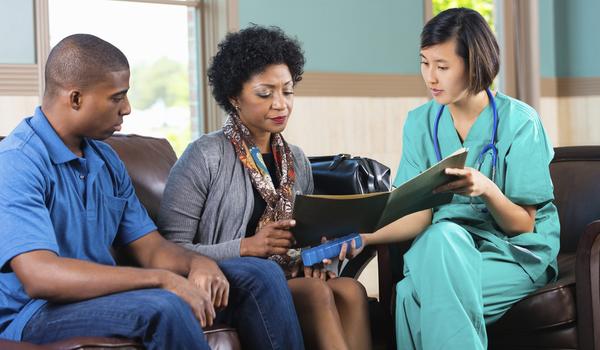Referral to a specialist

If your doctor has referred you to a cancer specialist it is natural to be worried, but remember, only 1 in every 10 people who are referred in this way are actually diagnosed with cancer.1
Exactly what happens next will depend on the local services and on your symptoms.1
Ideally, your doctor will provide you with information about the possible diagnosis. You should also be given details about the following:2
- Where you are being referred
- The date and time of the appointment
- What you can expect to happen during the appointment
- How long the results of the tests or a diagnosis may take to arrive
- Whether you can take someone along with you when you go
Waiting for an appointment with a specialist can sometimes be stressful, but support is available. Contact your doctor if you have any concerns or questions, or if your symptoms get worse.1
You may find it helpful to take along a notepad (or an electronic version on a phone or tablet) when you go to see the specialist, so that you can keep a record of what is being said.1
It can also be useful to take along a list of questions to ask. These might include:1
- What am I being tested for?
- What are you looking for?
- How reliable are the tests?
- How long will the tests take?
- Do the tests have any after effects?
- How long will it take to get my test results?
- Who will give me the results?
- Who can I talk to if I have any questions?